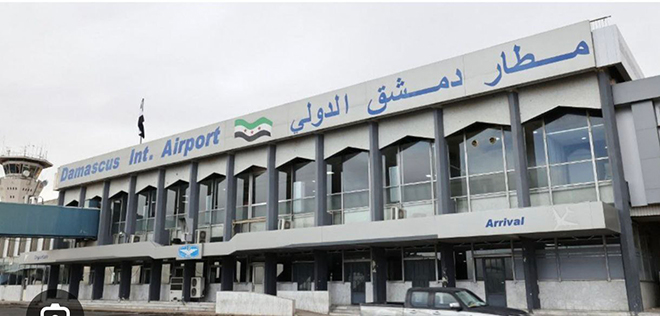Syria Launches Ambitious Plan to Rehabilitate Civil Aviation Sector and Prepares for Return of European Companies

The General Authority for Civil Aviation in Syria revealed a comprehensive plan aimed at rehabilitating the infrastructure of the aviation sector, including the development of current airports and converting some military airports into civilian ones, amid increasing openness from European airlines after the lifting of international sanctions.
The President of the General Authority for Civil Aviation, Omar Hisham Al-Hassri, stated that the sector is "dilapidated and in need of radical restructuring," confirming a plan to modernize the five existing airports, in addition to building a new airport in Damascus with a capacity of up to 30 million passengers annually.
He added that efforts are underway to increase the capacity of Damascus International Airport to 5 million passengers annually, and to increase the capacity of Aleppo International Airport to 2 million passengers, considering these projects as important investment opportunities for local and foreign companies.
In a strategic move, Al-Hassri announced the conversion of Mezzeh Military Airport into a civilian airport, which will contribute to expanding air traffic in the capital Damascus and adding a new location to the Syrian airport network.
This comes within the framework of the Syrian government's efforts to restructure vital sectors, as President Ahmed Al-Shar'a issued Decree No. 136 for the year 2025 appointing Al-Hassri as the President of the Authority.
Meanwhile, the advisor at the Authority, Sameh Arabi, explained that work is underway to increase the number of Syrian air fleet aircraft by 5 to 6 aircraft per year, with the possibility of doubling the number depending on circumstances.
He noted that several European airlines are in contact with the Authority after the lifting of sanctions on Syrian civil aviation, to assess the readiness of airports and resume operations, stating that these airlines "take their time to study the technical situation before actually starting flights."
Arabi revealed that the Authority received three European offers to install a new radar at Damascus International Airport, in addition to air navigation equipment and modern landing devices, including equipment provided by Turkey as part of the rehabilitation program.
He added that despite the rehabilitation of the airport in just two months, it still operates below its maximum capacity prior to 2011, due to a lack of some equipment.
Arabi mentioned that a specialized Turkish team has begun training Syrian personnel on operating modern devices, while a delegation from three European companies is scheduled to visit Damascus next week to continue negotiations for installing radars.
He affirmed that Syria has become technically capable of operating flights to various countries worldwide after the lifting of sanctions, indicating that the management of Syrian Airlines is now in the hands of competent national cadres after terminating a contract with a foreign company that previously managed it.